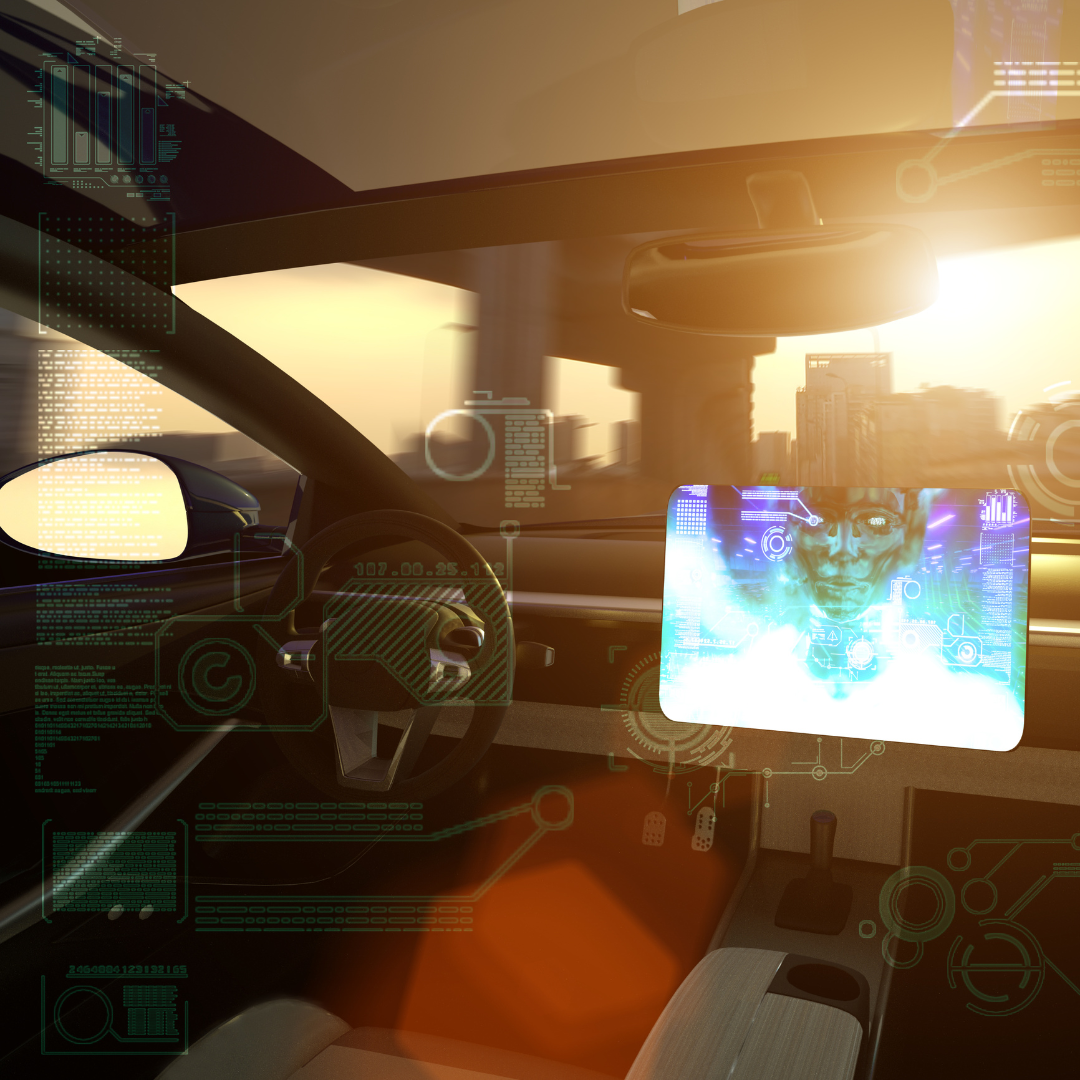AI in the Automotive Industry: How Technology is Changing Cars

The automotive industry is a dynamic and constantly changing sector that holds a significant position in global economies and our daily lives. It involves a diverse array of companies engaged in designing, making, promoting, and selling motor vehicles. This vast industry covers various modes of transportation, including cars, trucks, buses, motorcycles, and more.
When it comes to the automotive manufacturing process, it involves a range of activities, and each plays an important role in the production of vehicles to meet quality standards and customer expectations. For instance, the automotive industry heavily relies on Electronic assembly by Electronic Terminations (or a similar firm) for the production of electronic components and systems for their vehicles, like sensors, controllers, and displays.
Similarly, precision machining and casting are utilized to produce engine components and transmission parts. Additionally, quality control measures are taken, including rigorous testing and inspection protocols, to ensure that each vehicle meets safety and performance standards before it leaves the factory. If an issue does come up, such as strength and stability, it may turn out that the need for new materials is required, e.g. acetal injection molding to ensure that any and all products made are performing their best without any problems.
Furthermore, the automotive industry has greatly been revolutionized in the last decade. All thanks to the development of artificial intelligence (AI) technology! Beside AI has become integral to modern cars, from self-driving vehicles to improved safety systems and more efficient engines. In this blog post, we’ll explore how it is changing the automotive industry and how it’s transforming the way cars are designed, manufactured, and marketed. Get ready for a journey into the exciting future of automotive technology!
AI in the Automotive Industry
Artificial intelligence has become one of the hottest topics in the automotive industry in recent years. As carmakers strive to develop ever-more advanced vehicles, they regard AI as a critical tool to help them achieve their goals. There are many different ways in which AI can be helpful in the automotive sector. One of the most obvious is the development of autonomous or self-driving cars. Here, AI is used to create systems that can identify objects and navigate around them without human input.
Other potential applications for AI in the automotive industry include:
- Developing better methods for predicting traffic patterns and congestion levels
- Helping drivers find parking spaces more easily
- Enhancing vehicle safety by identifying potential hazards on the road ahead
- Generating real-time reports on traffic conditions for drivers
If you are eager to dive deeper into the advantages of AI in the automotive industry, there are several avenues to explore. You can consider browsing AI-tech related blogs and journals for all the detailed insights. Also, you can peruse monthly publications from the automotive industry or review case studies and research reports that highlight the adoption and impact of AI technologies. Furthermore, you might also consider listening to podcasts, such as those available on a google podcast or Microsoft podcast, that might offer valuable discussions on the influence of AI in the automotive sector.
AI’s Impact on Safety and Efficiency
In recent years, there has been a growing interest in the potential for artificial intelligence to improve safety and efficiency in the automotive industry. Automotive companies are investing heavily in AI research and development, intending to create vehicles that are more intelligent and responsive to their surroundings.
AI has many potential benefits for increased safety and efficiency in the automotive industry. For example, AI-equipped cars could be better at avoiding accidents by detecting hazards on the road ahead and reacting accordingly. It could also streamline traffic flow, reduce congestion, and help plan routes that avoid areas with high traffic levels or poor road conditions.
For owners of heavy-duty trucks, AI-driven diagnostics are only as useful as the components they monitor; reliable mechanical systems remain essential to realize efficiency and safety gains. Pairing smart sensors with properly maintained engines, fuel systems and filtration can cut downtime and fuel costs, so sourcing quality replacement parts matters.
For practical guidance and a wide selection of compatible components, many technicians consult suppliers of diesel parts that provide detailed fitment information and technical support. Combining data-driven diagnostics with correct hardware choices helps fleets translate predictive insights into tangible performance improvements.
AI technology is still in its early stages, but it has the potential to revolutionize the automotive industry. As it continues to develop, we expect to see even more innovative applications of this technology that will make our roads safer and our journeys more efficient.
Challenges and Limitations of AI in Cars
The automotive industry is under pressure to develop more efficient, safe, and affordable vehicles. At the same time, consumers are demanding ever-more luxurious and technologically advanced features in their cars. Artificial intelligence (AI) has the potential to meet these challenges. Still, there are also significant limitations that need to be considered.
One of the key challenges facing AI in the automotive industry is the sheer size and complexity of the data sets that need to be processed. Cars generate massive data from their various sensors and systems, which need to be analyzed to decide how the vehicle should operate. Another challenge is the real-time nature of many automotive applications. Decisions must be made quickly and accurately for the car to function safely and efficiently. This places significant demands on the AI system regarding speed and accuracy of decision-making. Finally, there is the safety issue. Any mistakes made by an AI system could have potentially catastrophic consequences. To put into service, an AI system for a vehicle must first undergo extensive testing and verifying.
Despite these challenges, AI holds great promise for the automotive industry. By harnessing the power of artificial intelligence, automakers can develop vehicles that are safer, more efficient, and more affordable: meeting the needs of both consumers and regulators.
The Future of AI in Automotive
The automotive industry is standing on the edge of a transformative period. In the upcoming years, we can expect a substantial surge in the integration of artificial intelligence within vehicles. This cutting-edge technology is presently being harnessed to develop autonomous cars, and soon, it will elevate the safety, efficiency, and comfort of all vehicles. AI is particularly well-suited for enhancing automotive performance, drawing upon a wealth of data collected from a car’s various sensors and cameras.
This data encompasses a wide array of information including tire pressure, road conditions, obstacles, wind speed, temperature, driver attention, and much more. This data is consistently stored on multi-cloud servers, typically managed by car manufacturers. Later, it’s processed to assist the driver in various aspects of driving. The outcome? Drivers can now anticipate and steer clear of potential hazards, alleviate traffic congestion, and enhance fuel efficiency. This exciting progress in AI is poised to redefine the way we experience driving.
There are many potential applications for AI in the automotive industry. Major automakers are already testing this technology, which holds great promise for improving road safety. It is used to monitor conditions on the road and make decisions that help avoid accidents. AI systems could detect an object in the road ahead and automatically apply the brakes if necessary. It can optimize vehicle performance for fuel economy or electric range. AI systems could choose the most efficient route based on real-time traffic conditions. It can customize the driving experience for each passenger. That can adjust the seats, music, and climate control based on each person’s preferences.
AI is Driving the Revolution of the Automotive Industry
AI technology is revolutionizing the automotive industry, making our cars more innovative, safer, and more efficient than ever. AI can also help us better understand how we interact with our vehicles and make driving a more enjoyable experience. As this technology continues to evolve, it will open up new possibilities for vehicle design and operation that could significantly improve how we drive. With all of these advancements, it’s clear that AI has become an integral part of our lives, from powering driverless cars to helping us stay connected while on the go.



0 Comments